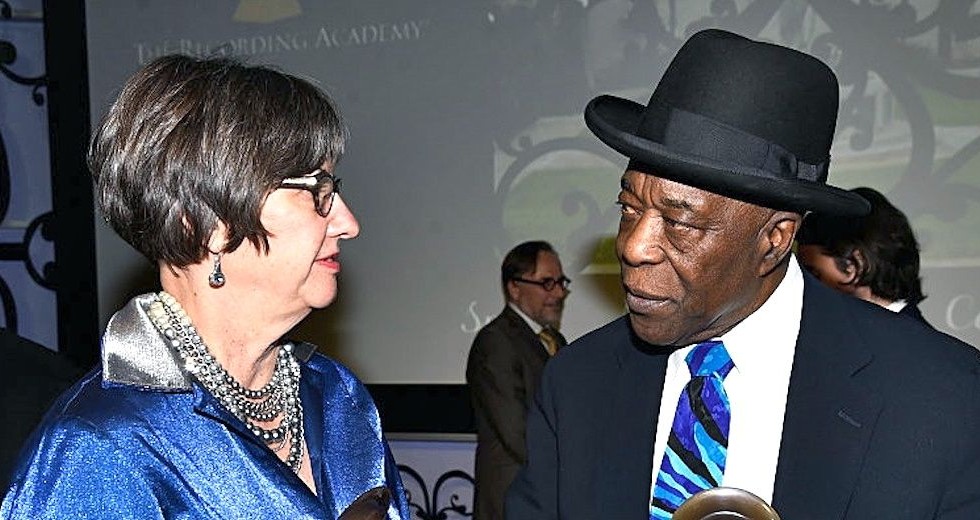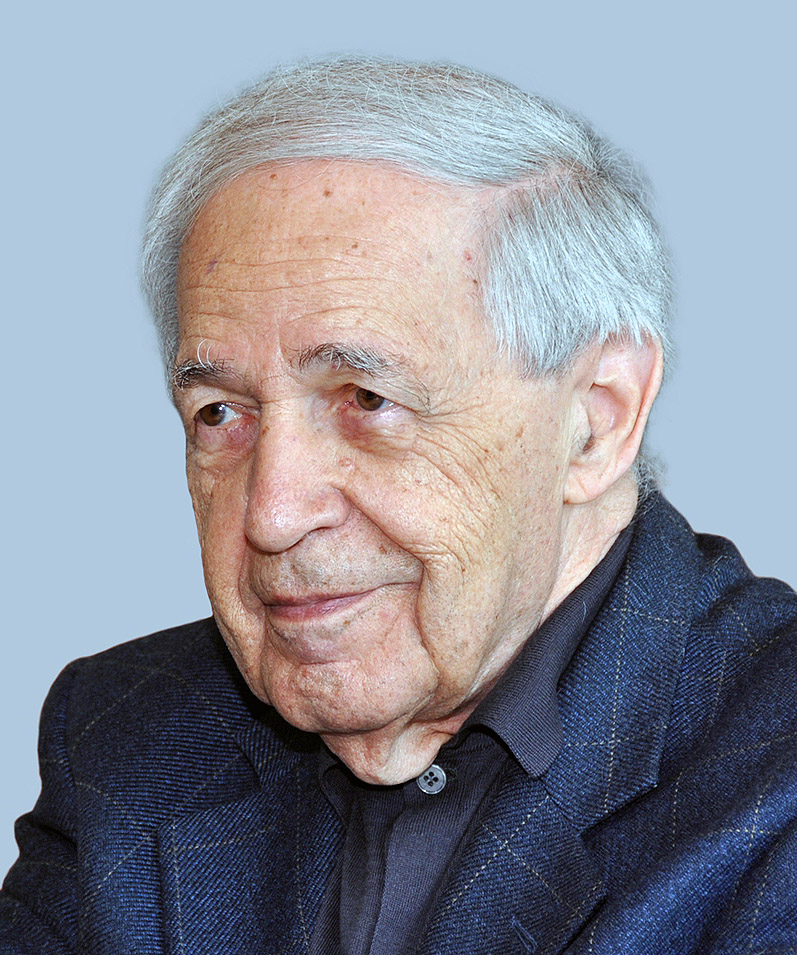
Pierre Boulez, the Helen Regenstein conductor emeritus of the Chicago Symphony Orchestra, was honored over the weekend as one of this year’s recipients of the Grammy Lifetime Achievement Award. Other honorees are the Bee Gees (rock/pop), Buddy Guy (blues/rock), George Harrison (rock/pop), Flaco Jiménez (Latin/roots), the Louvin Brothers (country) and Wayne Shorter (jazz).
Accepting the honor on the Maestro’s behalf was Martha Gilmer, formerly the CSO’s vice president for artistic planning and audience development, and now chief executive officer of the San Diego Symphony. The following were her remarks at the ceremony, held Feb. 7 in Los Angeles:
It is a great honor to be here today accepting the Lifetime Achievement Award for Pierre Boulez. On behalf of Pierre Boulez, I want to thank the Academy for this honor, and personally I congratulate the Academy for its vision in honoring Pierre Boulez with this award.
Of course those of us who know and love him wish he were here with us to accept this in person.
I have had the honor of knowing Pierre since 1987, and in my role with the Chicago Symphony Orchestra, I worked with him to plan years of programs, which resulted in many of the recordings that we celebrate with this award today.
What is most impactful about Pierre are the many roles that he has played. As a composer, he continues the great French tradition of Debussy and Ravel. He speaks of the post-war Paris time as the most vivid time of his life, when suddenly there was an influx of music and thought from around the world flooding the isolated Paris scene. It was from this moment that Boulez declared the need to find a new path, a new voice, in composition. In his words: “I tried to find out how a musical language could be built from scratch.”
For Pierre, composing music is a journey not a destination. Again in his words: “Music is not a vessel into which the composer distills his soul drop by drop, but a labyrinth with no beginning and no end, full of new paths to discover, where mystery remains eternal.”
As a conductor, Boulez brings clarity to the music, fidelity to the score and meaning to all interpretations. His performances of Mahler, Bartok, Stravinsky, Wagner, as well as his own works, leave us with a legacy of interpretations by Boulez, the composer, of the work of his fellow composers.
But it is Boulez as a visionary I will always treasure most. He famously called for the end of the conventional presentation of music. His call to “blow up all opera houses” was a call for change in conventional presentation — which by the way did result in a knock on his hotel room door many, many years later, and a temporary confiscation of his passport. His rug concerts in New York, and his roundhouse performances in London led to a new way of hearing music shaken loose from the encumbrances of convention. He embraced and encouraged the music of other composers of many styles, including Frank Zappa, whose works he performed and who he counted as a friend.
He believes in breaking down barriers and boundaries between genres, nations, styles. His influences are Japanese court music, and writers of French modernism like Mallarme and Proust, and the artist Cezanne, whose sketches of landscapes reflect a new perspective on a region that Boulez called home for parts of his life.
He encouraged all of us to strive to expose the significance of art, taking risks and embracing experimentation. In Pierre’s words: “Creation exists only in the unforeseen made necessary.”
Pierre will turn 90 on March 26. He has impacted generations of musicians, and audiences through his work. His encouragement toward allowing the art form to expand, to reinvigorate and to evolve will be his legacy. If he were here today, he would say to all of us for whom music is a critical part of our lives and culture, “Don’t stop … keep going.”
TOP: Martha Gilmer talks with Buddy Guy, Chicago blues icon, at the Grammy Lifetime Achievement Award ceremony Feb. 7 in Los Angeles. | Getty Images
